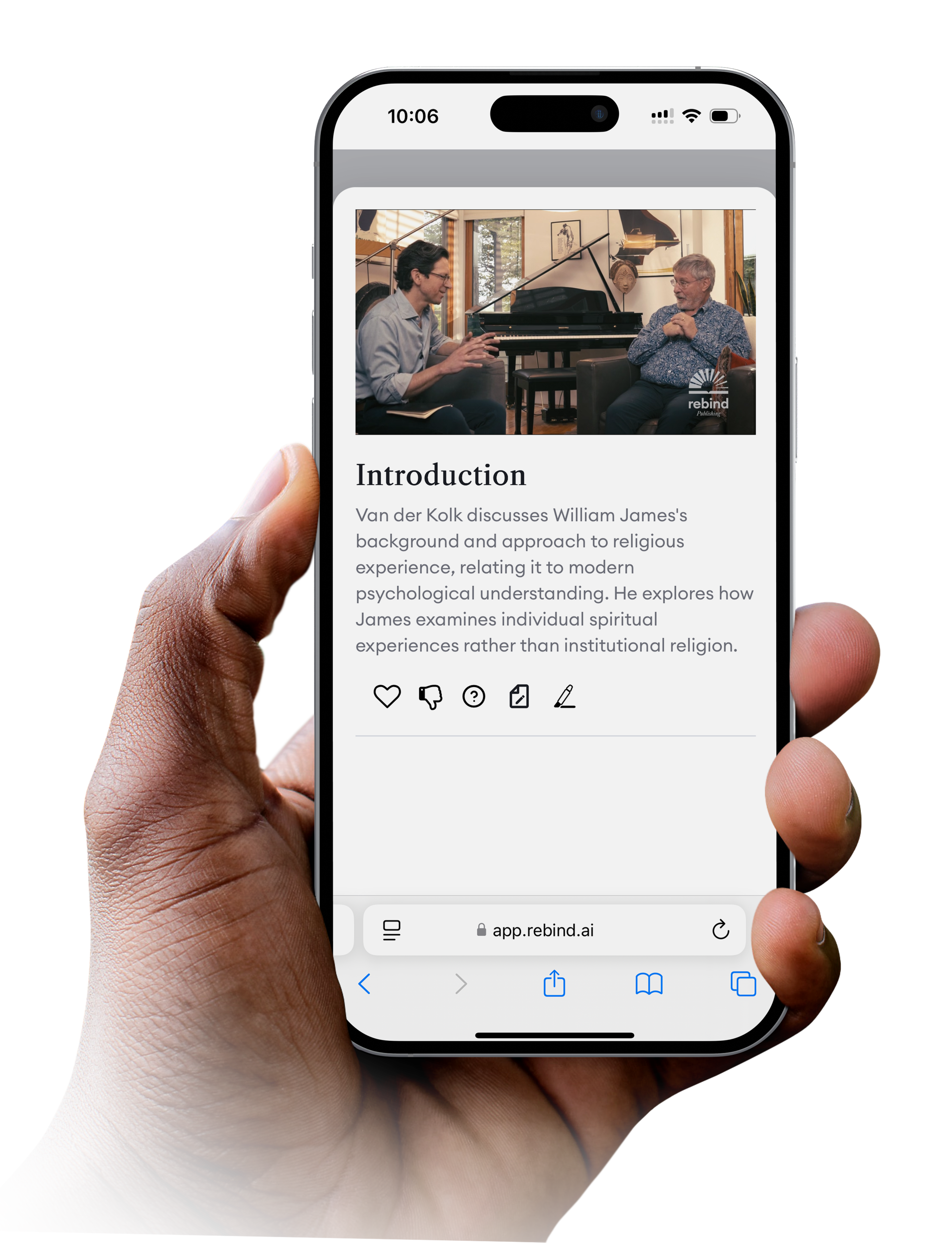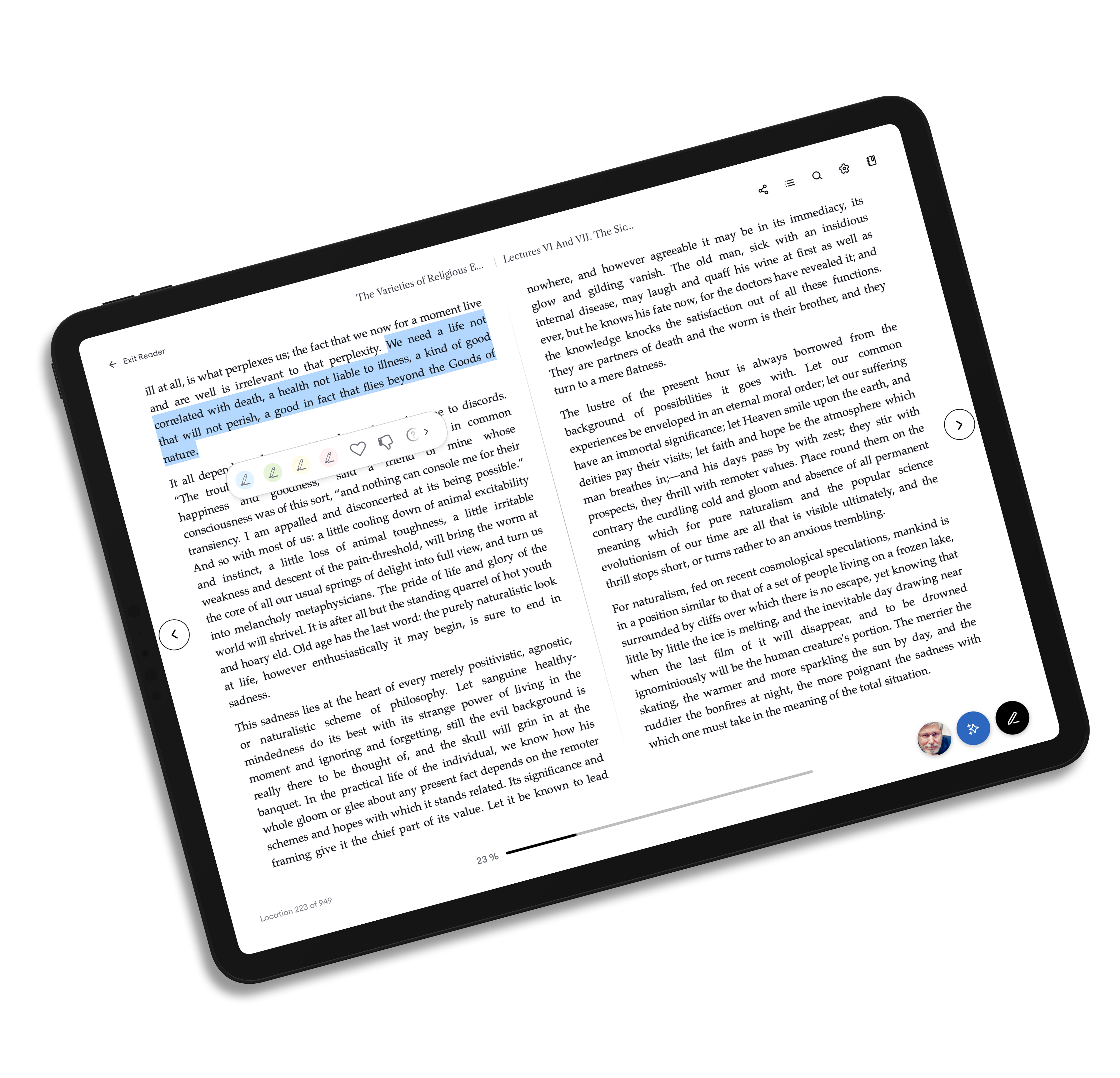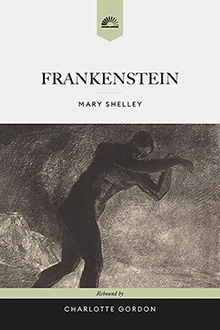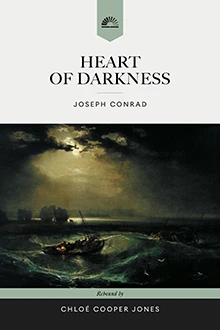Experience William James'
The Varieties of Religious Experience
with Original Commentary by
John Kaag and Bessel van der Kolk
Immersive Videos

Interactive Discussion

Personalized reading features

WHAT'S INCLUDED
x 104 mins
9
Discussion topicsExplore mystical experiences across cultures to understand your own spiritual path.
Experience a new way to read
Engage in Conversation
Ask questions, dive deeper, and interact with AI-powered discussions to make the experience truly your own.
Discover Insights
Explore expert commentary, multimedia content, and thought-provoking questions.
Create your own Rebind
Select text, generate personalized writing prompts, and develop your own interpretation of the book.
The Varieties of Religious Experience
In a world increasingly divided between scientific materialism and religious dogmatism, William James’s The Varieties of Religious Experience offers a refreshing middle path. Written by Harvard’s first psychology professor in 1902, this groundbreaking work examines religious and mystical experiences through a psychological lens while treating them with genuine respect. James focuses not on theological debates but on how these intense personal moments shape human consciousness and behavior.
James invites readers into the minds of those experiencing conversion, mysticism, and saintliness, using rich case studies rather than abstract arguments. He distinguishes between “healthy-minded” optimists and “sick souls” who struggle with existential darkness, exploring how both temperaments navigate their spiritual journeys. Throughout, James demonstrates remarkable empathy for the varied ways humans experience what they consider divine.
Trauma expert Bessel van der Kolk and philosopher John Kaag bring contemporary perspectives to James’s century-old insights, creating a dialogue between modern psychology and classic pragmatism. Their commentary reveals why this text remains essential reading—not just for understanding religion, but for comprehending the full spectrum of human experience in all its complexity and contradiction.
“What I love about William James is his willingness to take the complexity of the universe, the complexity of who we are as human beings and the complexity of the world that we live in, which no single formula will ever be able to capture.”
REBIND FEATURES
You might like
~The world's most intriguing guides open up their favorite books for you.
Tour the classics with a companion and read deeper.
Stay updated on new book releases and features
By signing up for our email list, you indicate that you have read and agree to our Terms of Use.
We respect your privacy.










33,000
Words of original commentary available for interactive AI discussions inside the eBook